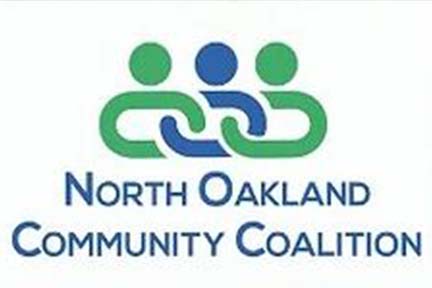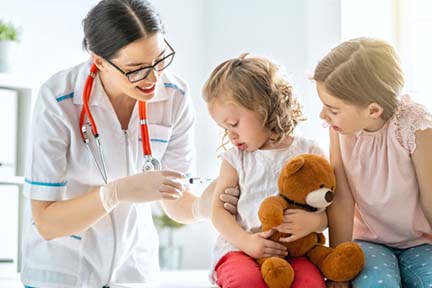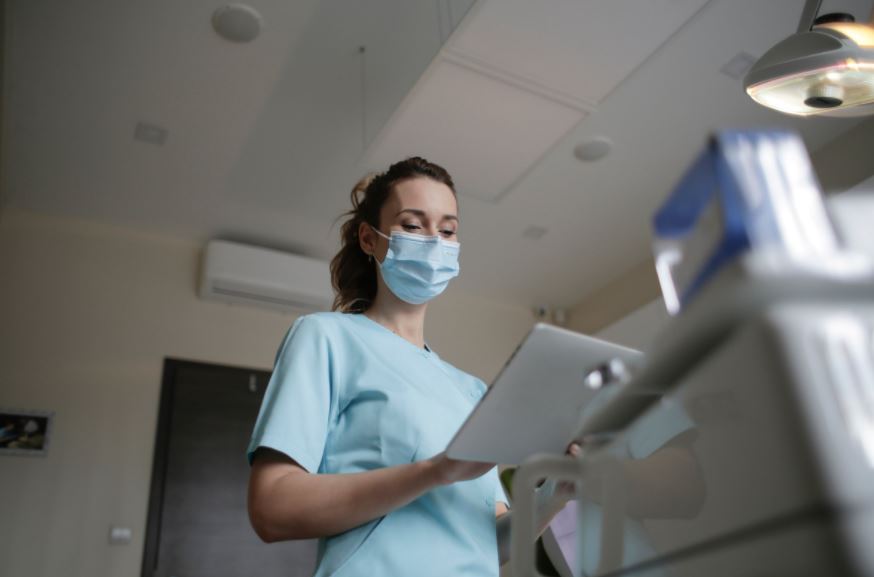
May at the NOCC
|
||||||||||||||||
|
||||||||||||||||
|

|
||||||||||||||||
|
||||||||||||||||
|

Press Release FOR IMMEDIATE RELEASE: April 21, 2025 CONTACT: Laina Stebbins, 517-241-2112, StebbinsL@michigan.gov Families urged to get children caught up on vaccines LANSING, Mich. – During National Infant Immunization Week, the Michigan Department of Health and Human Services is encouraging parents across Michigan to ensure their children receive vaccinations on time for optimal protection against serious illnesses. National Infant Immunization Week (NIIW), an annual observance recognized this year April 21-28, highlights the importance of protecting children 2 years old and younger from vaccine-preventable diseases. Global immunization efforts during the last 50 years have saved an estimated 154 million lives, including 101 million infants. With ongoing measles outbreaks nationwide and cases rising in Michigan, it is crucial now more than ever to ensure Michigan residents – particularly children – are up to date on all recommended immunizations. “Vaccines are one of the most effective tools we have to keep children healthy and communities safe,” said Dr. Natasha Bagdasarian, chief medical executive. “With diseases like measles on the rise across the country, staying on schedule with childhood immunizations is more important than ever. I urge all parents to connect with their child’s health care provider, pharmacy or local health department to make sure their child is protected on time, every time.” The Centers for Disease Control and Prevention and the American Academy of Pediatrics urge parents to keep their children on schedule with well-child visits and routine vaccinations. Timely vaccination is essential for protecting against potentially life-threatening diseases. This helps children stay healthy for school, childcare and beyond. Even small declines in vaccination coverage can result in an increase in the number of cases and outbreaks of vaccine preventable diseases like measles that can cause serious illness, hospitalization and death. According to data from the Michigan Care Improvement Registry, as of Dec. 31, 2024, only 57% of children 19 through 35 months of age were up to date with all recommended vaccines. This means that nearly half of Michigan toddlers are not fully protected from vaccine-preventable diseases. Parents should reach out to their child’s health care provider to find out which vaccines are needed to ensure their child stays protected. For more information on vaccines, parents can visit Michigan.gov/immunize or iVaccinate.org. |

  |
|||
Press Release FOR IMMEDIATE RELEASE: April 11, 2025 CONTACT: Erin Stover, 517-285-6270, stovere@michigan.gov MDHHS and Children Trust Michigan raise awareness of resources and support available to families to help keep kids safe as part of Child Abuse Prevention Month Child Abuse Prevention Awareness Day rally to be held at the Capitol on April 15 LANSING, Mich. – The Michigan Department of Health and Human Services (MDHHS), along with Children Trust Michigan, recognizes the important role child abuse prevention plays in keeping kids safe and helping parents, families and caretakers access the tools they need to raise children in supportive home environments. “Children deserve to grow up in safe, loving and nurturing homes. Every day, our caseworkers help families navigate crises by connecting them to prevention resources and support to help families stay together safely because research shows that kids do best when they are with their families,” said MDHHS Director Elizabeth Hertel. “MDHHS is committed to our shared responsibility with the legislature, law enforcement, judges and partners to continue to enhance Michigan’s child welfare system to meet the needs of kids and families.” As part of the activities and initiatives planned throughout the month, the 17th Annual Child Abuse Prevention Awareness Day rally, known for its blue and silver pinwheel garden, will be held on Tuesday, April 15 at 10:00 a.m. at the Michigan State Capitol. The rally will host several guest speakers including Lt. Governor Garlin Gilchrist II, Attorney General Dana Nessel, MDHHS Senior Deputy Director Demetrius Starling and others. “Every Michigander has a role to play in the prevention of child abuse and neglect. From parent support as they raise their family to informing the community on the importance of their role in keeping children safe, Children Trust Michigan partners are there,” said Suzanne Greenberg, executive director of Children Trust Michigan. “The blue and silver pinwheels displayed in April, and throughout the year, symbolize the health and happiness all children deserve. We ask that all Michiganders join us to help raise awareness this month about the long-term impact child abuse and neglect has and help to strengthen families and to create brighter futures for all Michigan’s children.” In addition to Governor Whitmer’s FY2026 budget which includes investments focused on meaningful, timely and effective services and supports to help kids safe, the governor has proclaimed April 2025 as Child Abuse Prevention Month in Michigan. Ongoing efforts to improve the safety and well-being of Michigan children: Keep Kids Safe Action Agenda The Keep Kids Safe Action Agenda outlines proactive steps to enhance the safety and well-being of children across the state. This agenda focuses on key areas such as prevention, intervention, stability, wellness and workforce to ensure we are providing the best possible support for Michigan’s children and families. Family Resource Centers Family resource centers, a key part of the Keep Kids Safe Action Agenda, are community-based resource hubs where people and families can access formal and informal supports to promote their health and well-being. While family resource centers have many things in common, they are designed to reflect and be responsive to community needs and interests. They build parenting skills, connect families to resources and develop parent and community leadership. Family Impact Teams (FIT) Launched in August 2023 as part of the Keep Kids Safe Action Agenda, FIT is an innovative program that keeps children at risk of neglect safely in their homes by delivering services and assistance to families such as food and housing assistance, Medicaid programs and gas cards. Through FIT, MDHHS family resource specialists engage with families face-to-face, determine their eligibility for assistance programs offered by MDHHS, and refer them to other local agencies that can provide them with resources to meet the families’ needs. Children Services Administration (CSA) teaming and support model With the new CSA teaming model, announced in March 2025, employees will have clear and distinct roles and guidance on collaboration expectations to provide support for families from the moment they enter the child welfare system. The team, including caseworkers, supervisors, family resource specialists and other support roles will work cohesively to address families’ specific needs, whether its economic, educational or administrative. This will empower the CSA workforce by providing additional supports to handle complex situations, both improving the employee experience and reducing turnover while maintaining continuity for families. About Children Trust Michigan Children Trust Michigan, housed within MDHHS, was established by the Michigan Legislature in 1982. It serves as a voice for Michigan’s children and families and promotes their health, safety and welfare by funding effective local programs and services that prevent child abuse and neglect |

Press Release FOR IMMEDIATE RELEASE: April 7, 2025 CONTACT: Lynn Sutfin, 517-241-2112, SutfinL1@michigan.gov MDHHS seeks applicants for weatherization grants LANSING, Mich. – The Michigan Department of Health and Human Services (MDHHS) has issued a competitive Grant Funding Opportunity for statewide weatherization services. The purpose of the program is to provide energy conservation and related health and safety services for eligible low-income households at no cost to the resident. MDHHS issues grants to local weatherization operators across the state to serve designated areas, ensuring that all counties in Michigan can benefit from this energy-saving program. This opportunity is open to any community action agency or public or nonprofit entities. An estimated $18.3 million is available for the first 12 months of the program. Each applicant will be awarded funding based on the number of counties served and the number of applicants awarded in each county. Maximum funding amounts for each county are based on population and temperature data. After the initial agreement period, continuation awards will be available. MDHHS anticipates issuing up to 25 awards. All applicant agencies must register for the EGrAMS system and request an application by 5 p.m., Friday, April 25. Grant applications must be submitted electronically through the EGrAMS program by 3 p.m., Wednesday, April 30. The initial program period begins July 1, 2025, and ends Sept. 30, 2025. For more information or to apply, visit the EGrAMS website and select “About EGrAMS” link in the left panel to access the “Competitive Application Instructions” training manual. The complete GFO can be accessed under the ‘Current Grants’ section under the “Community Action & Economic Opportunity” link and selecting the “WAPD2-2025” grant program. A pre-application conference was held to discuss this funding opportunity and provide instructions on using the EGrAMS system. The recorded conference can be accessed from the “Documents” tab of the GFO on the EGrAMS website. |

|
|||
Press Release FOR IMMEDIATE RELEASE: April 3, 2025 CONTACT: Lynn Sutfin, 517-241-2112, SutfinL1@michigan.gov MDHHS launches Nurse Loan Repayment Program LANSING, Mich. – To help increase the number of health care providers serving residents in underserved communities, the Michigan Department of Health and Human Services (MDHHS) is launching a student loan repayment program for nurses. The Nurse Loan Repayment Program (NLRP) will assist employers in the recruitment and retention of licensed practical nurses and registered nurses who commit to providing nursing services at eligible practice sites. The program will provide up to $300,000 in tax-free funds to successful applicants to repay educational debt over a period of up to four years for those working at state psychiatric facilities or up to 10 years for other eligible practice sites. There is about $9 million available for student loan repayment. “Nurses are the backbone of the health care system, providing essential care to patients in hospitals, clinics, schools and homes,” said Elizabeth Hertel, MDHHS director. “They are often the first point of contact for patients and play a critical role in patient education, advocacy and support. Health care facilities across the state are facing nursing shortages and this loan repayment program will help providers recruit and retain nurses to provide vital care to patients.” Applicants will compete for consecutive two-year NLRP agreements requiring them to remain employed for a minimum of 40 hours per week for no less than 45 weeks per year at eligible nonprofit practice sites that provide nursing services or full-time for nurses in public school settings or who teach at a school of nursing. Nurses must remain with the employers who sponsor them during their two-year agreements, and employers must continue to employ the nurses they sponsor during their two-year service obligations. Employers must not use NLRP payments to offset participants’ salaries or other components of their compensation packages. Applications are available at Michigan.gov/NLRP, and the deadline is Wednesday, June 4. Applicants and their employers are urged to review guidance on the website. Applicants should contact their student loan servicers to begin completion of the Nurse Application Part B form as soon as possible as this form takes time to be completed. To learn more about the program, visit Michigan.gov/NLRP and subscribe to receive NLRP updates via GovDelivery. |

 |
Press Release
FOR IMMEDIATE RELEASE: April 1, 2025
CONTACT: Laina Stebbins, 517-241-2112, StebbinsL@michigan.gov
MDHHS announces more than $8 million for Healthy Community Zones
LANSING, Mich. – The Michigan Department of Health and Human Services (MDHHS) has awarded more than $8 million to 20 organizations to build Healthy Community Zones in Chippewa and Saginaw counties and the City of Detroit.
By funding multiple organizations in each of these regions, MDHHS is investing in place-based, community-led solutions to reduce racial disparities in chronic disease.
“By investing in community-driven solutions, we are empowering local organizations to create environments that support healthier lives,” said Elizabeth Hertel, MDHHS director. “Healthy Community Zones will help ensure that all families – regardless of where they live – have greater access to resources that promote well-being and long-term health.”
MDHHS received applications from 38 organizations, with funding requests exceeding $15 million. Healthy Community Zones’ multi-year initiative will allow organizations the opportunity to apply for continued funding after the initial funding period of 18 months, which begins in April 2025.
The following grant awardees received funding:
Funded organizations proposed locally tailored strategies to make physical activity, nutrition and social cohesion more easily accessible for community members. Some examples of the innovative ideas receiving support include:
Healthy Community Zones funding is made possible through investments of the Michigan Racial Disparities Task Force, created per the Governor’s Executive Order 2020-55.
To learn more, visit the Healthy Community Zones website.